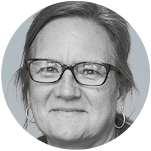Reform
Slow but sustainable
By Dagmar Wolf
The study titled “Cotton Sector Reform in Mali: Explaining the Puzzles” was part of the Africa Power and Politics Programmes (APPP). In the report, Renata Serra looks at political, economic and social factors which are at the heart of the sluggish reforms in the cotton industry in Mali, when compared to other West African countries.
Cotton is Mali’s main export product. According to an OECD-paper from 2006, a quarter of the population depends on this industry, which contributes about eight percent to the GDP. In addition the cotton business, as Serra points out, is a driving force of modernisation of agriculture in general. The sector thus generates income for the elite (officials, employees and politicians) on one hand, and on the other hand fosters widespread development and consequently contributes to poverty reduction.
The cotton sector in Mali is therefore more than a vital economic activity: it is an object of national pride; a basis for self-organisation of communities and a source of symbolic and cultural capital.
Corresponding to this double-sided meaning of the cotton sector reform, there are two different approaches:
– First, it is seen as a separate and autonomous sector, which should generate the highest profits possible. This tactic (“sector approach”) is used primarily by the international financial institutions and donors alike. They push for high profitability and independence from the state.
– Secondly, the cotton sector is regarded as an integral part of a widespread rural development process, which is crucial to food security, poverty alleviation and the development of rural infrastructure. This “holistic approach” is represented mainly by interest groups of the local communities.
These different points of view regularly led to tension. World Bank and International Monetary Fund insisted on their own reform agenda and made their fulfillment conditional for further credit to Mali. Nonetheless, the Government of Mali could not ignore the positions of key stakeholders such as the CMDT (Compagnie Malienne du Développement du Textile) and the Association of Cotton Producers. In order to implement reforms, the support of all relevant parties is crucial.
Trying to meet the diverse interests, the Government established a task force to restructure the cotton sector, the MRSC (Mission de Réstructuration pour le Secteur Coton). This task force was asked to formulate reform proposals in agreement with all stakeholders, so as to strengthen the productivity of the sector as well as to improve the population’s standard of living and to stimulate economic growth.
The reform process which continues to this day was only possible after many consultations and the participation of the cotton producers in Mali.
According to the study, a slow start to the reform process was necessary, although it was initially expensive. However, these measures were achieved through direct responsibility (“ownership”) of the state of Mali.
The author confirms findings from other studies within the Africa Power and Politics Programme, which have demonstrated the need to go beyond the standard package of institutional “best practices’’, an approach that is still endorsed by most of the donors.
The terms they demand do not meet the specific conditions of the affected countries. These demands may even block the implementation of reforms, warn the APPP authors. This is often the case when governments are pushed into difficult dilemmas that hinder meaningful dialogue between the stakeholders concerned.
Dagmar Wolf








